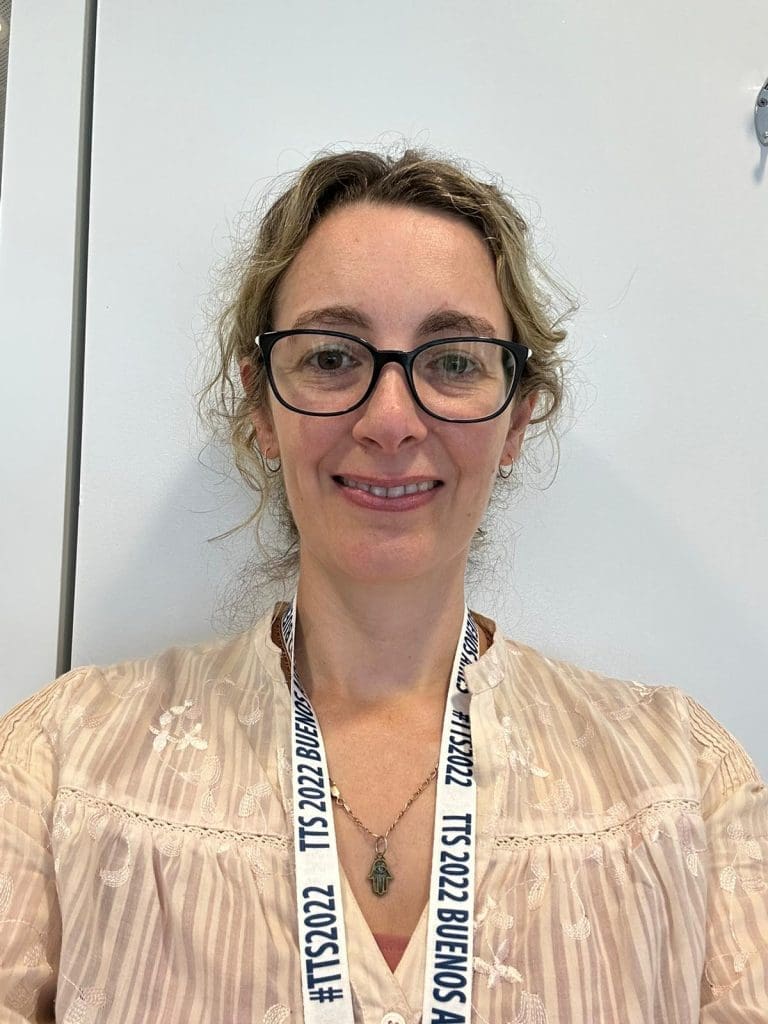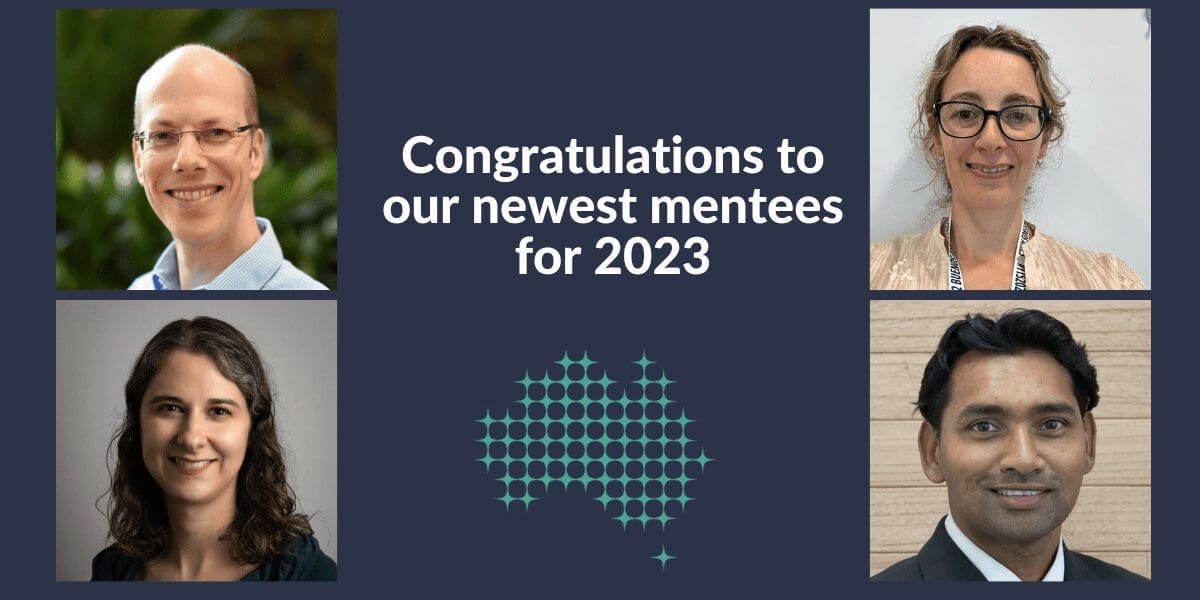Four emerging research leaders with expertise in genomics, psychology, epidemiology and nephrology have joined our competitive Mentorship Program.
Selected from a pool of applicants across Australia, these health and medical research stars will be paired with a mentor from the AAHMS Fellowship to support their career and leadership development.
Mentees become Associate Members of the Academy for three years, allowing them access to training, support and networking opportunities, as well as the opportunity to contribute to Academy policy projects and activities to advance the health of the Australian community.
The four new AAHMS Mentees are:
- Associate Professor Pascal Duijf, Associate Professor and Research Group Leader, Queensland University of Technology
- Associate Professor Kristin Gainey, Associate Professor, School of Psychological Science, The University of Western Australia
- Professor Gavin Pereira, Professor of Epidemiology, Discipline Lead – Health Economics, Epidemiology, Biostatistics, Data Analytics, Curtin University
- Professor Natasha Rogers, Head of Transplantation/Head, Kidney Injury Group, Westmead Hospital/Westmead Institute for Medical Research; Professor of Nephrology and Transplantation Medicine at University of Sydney
They join an existing 43 mentees, bringing the current cohort to 47. Since starting in 2015, more than 80 research leaders have been accepted into the program.
The Academy’s Mentorship Program accepts applications year-round, with new applications reviewed twice a year. See our program page for more information or to apply.
Meet our newest mentees
Associate Professor Pascal Duijf
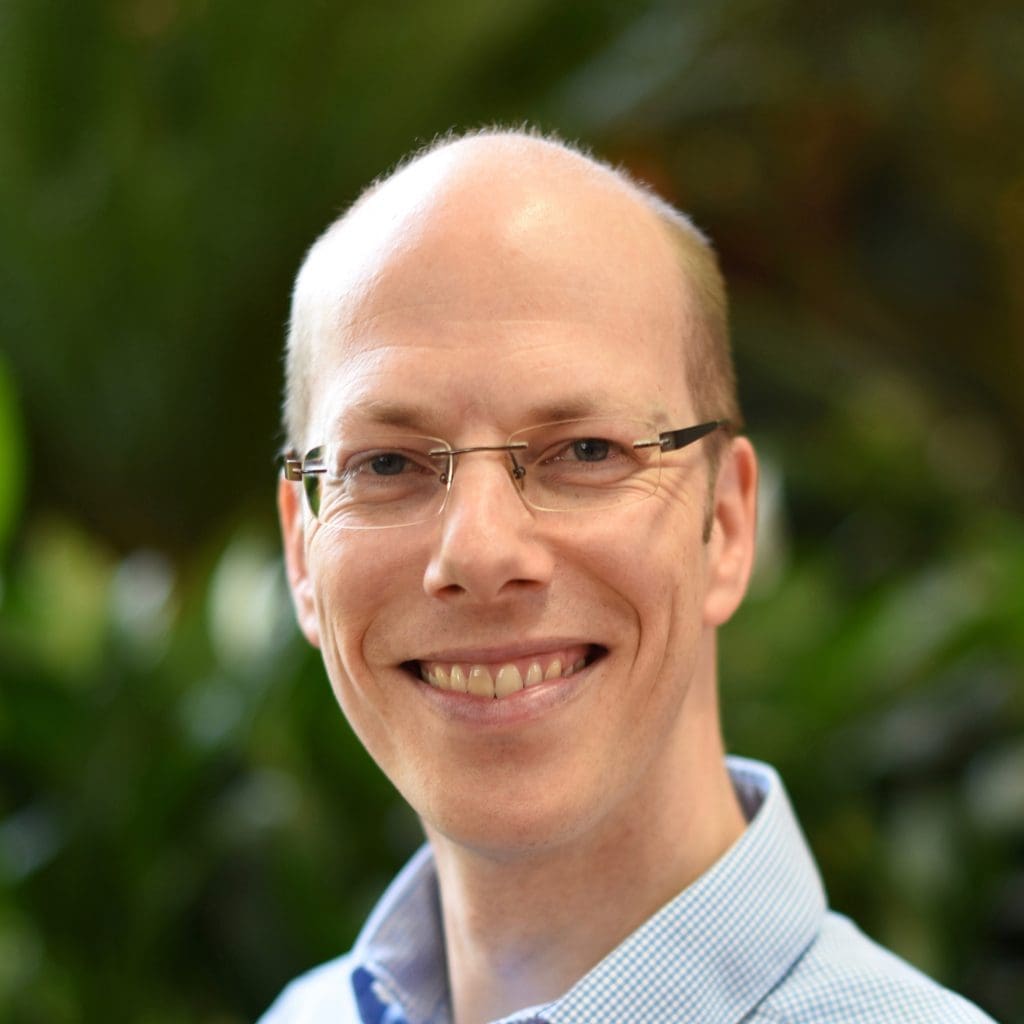
Associate Professor Pascal Duijf is Associate Professor and Research Group Leader at the School of Biomedical Sciences, Faculty of Health, QUT. He received his PhD degree in human genetics and trained as a postdoctoral fellow at the Memorial Sloan-Kettering Cancer Center in New York. As a research group leader at the Translational Research Institute, University of Queensland and Queensland University of Technology, his group discovered new mechanisms and the consequences of genomic instability in cancer. Through his research, Associate Professor Duijf aims to translate this knowledge into the development of new cancer diagnostic, therapeutic and precision medicine approaches.
“I hope to further grow my leadership skills, expand my translational research program and achieve professional and collaborative growth,” he said. “Ultimately, in turn, I hope to relay my knowledge, skills and experiences to the next generation of biomedical researchers.”
Associate Professor Kristin Gainey
Associate Professor Kristin Gainey is a clinical psychologist and associate professor at The University of Western Australia, where she runs the Emotional Wellbeing Lab. Her research examines emotional processes that are risk factors for depression and anxiety, or promote wellbeing, with implications for refining assessments and interventions. Her work has been recognised with international early career awards and external funding, and she is active as an associate and consulting editor for numerous academic journals.
“I was interested in the AAHMS Mentorship Program in part for the opportunity to have personalised discussion and guidance from a research leader in the health sciences, with the aim of strengthening my own research leadership and career trajectory as a mid-career academic,” she said. “I am also excited to learn more about how my work can be impactful in policy or industry collaborations, and to meet other researchers in health sciences and help promote community, government, and industry engagement as an Associate Member of AAHMS.”
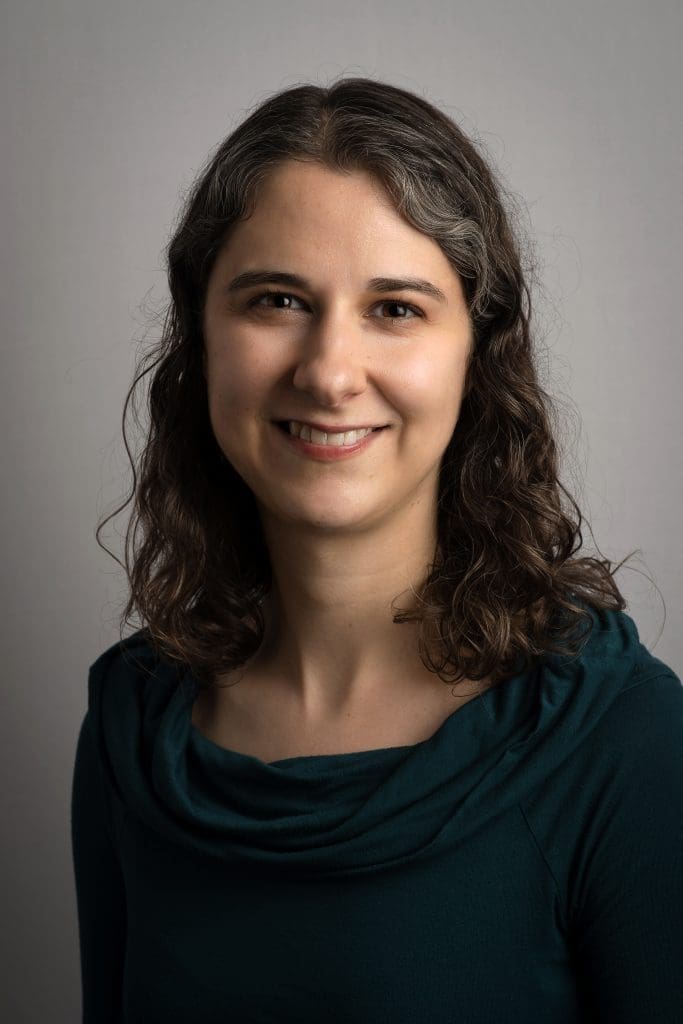
Professor Gavin Pereira
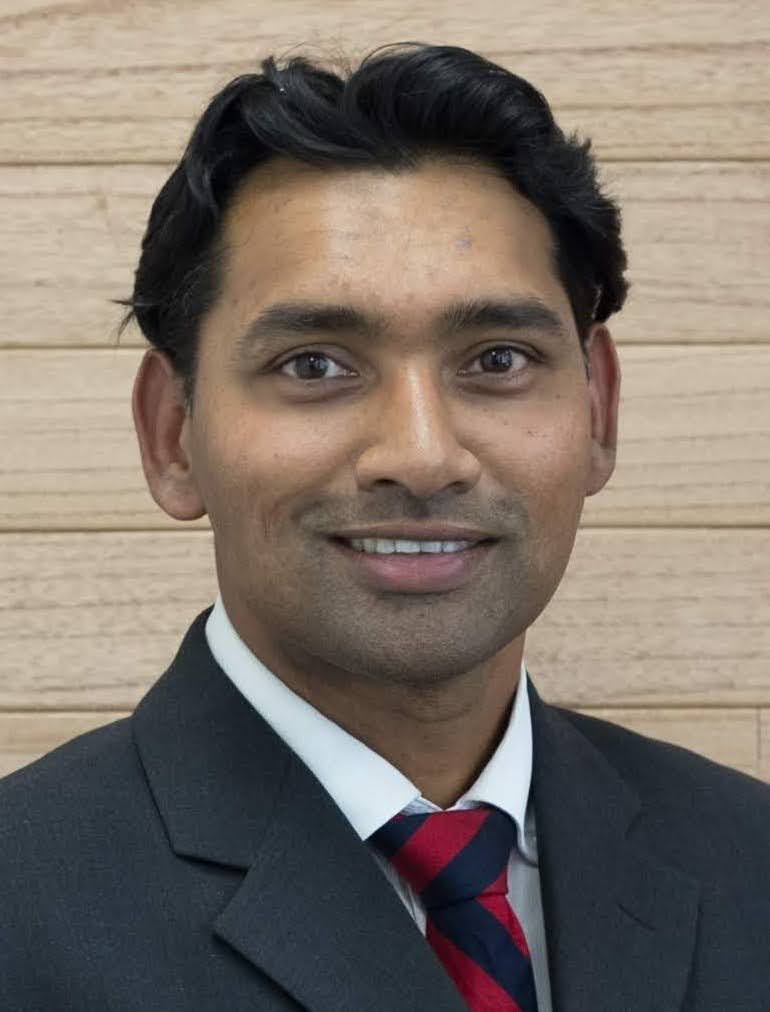
Professor Gavin Pereira is Professor of Epidemiology and Biostatistics at the Curtin School of Population Health, Curtin University, and a National Health and Medical Research Council (NHMRC) Emerging Leader Fellow. As an epidemiologist, environmental health researcher and biostatistician, he has led research teams in perinatal, paediatric and environmental epidemiology. He completed his PhD with the Telethon Kids Institute and post-doctoral fellowship at Yale University. Through his research, he has made substantial contributions to air pollution epidemiology, served as an expert witness for a federal senate hearing, re-evaluated WHO birth spacing guidelines, and recently expanded his research to low and middle-income countries such as Ghana, Ethiopia and Solomon Islands.
“I have recently built an independent research program,” Professor Pereira said. “Mentorship by a senior, well-accomplished role model would help me develop my own mentoring/coaching skills to pass on to others. My additional objectives are to contribute to policy statements, particularly environmental statements, to help provide expert cross-sector advice to government and to better engage with the public.”
Professor Natasha Rogers
Professor Natasha Rogers is Professor of Nephrology and Transplantation Medicine at the University of Sydney. She is also Head of Transplantation at Westmead – one of Australia’s busiest transplant units – and runs a basic science research laboratory at the Westmead Institute for Medical Research investigating molecular mechanisms of kidney injury, particularly the influence of matrix proteins on cellular injury pathways.
“I take great pride in working with some of the best clinicians in the country whose aim is to improve the lives of people with kidney disease,” she said. “A mentoring program is invaluable to mid-career researchers like myself who are striving to move forward along a challenging career path.”
